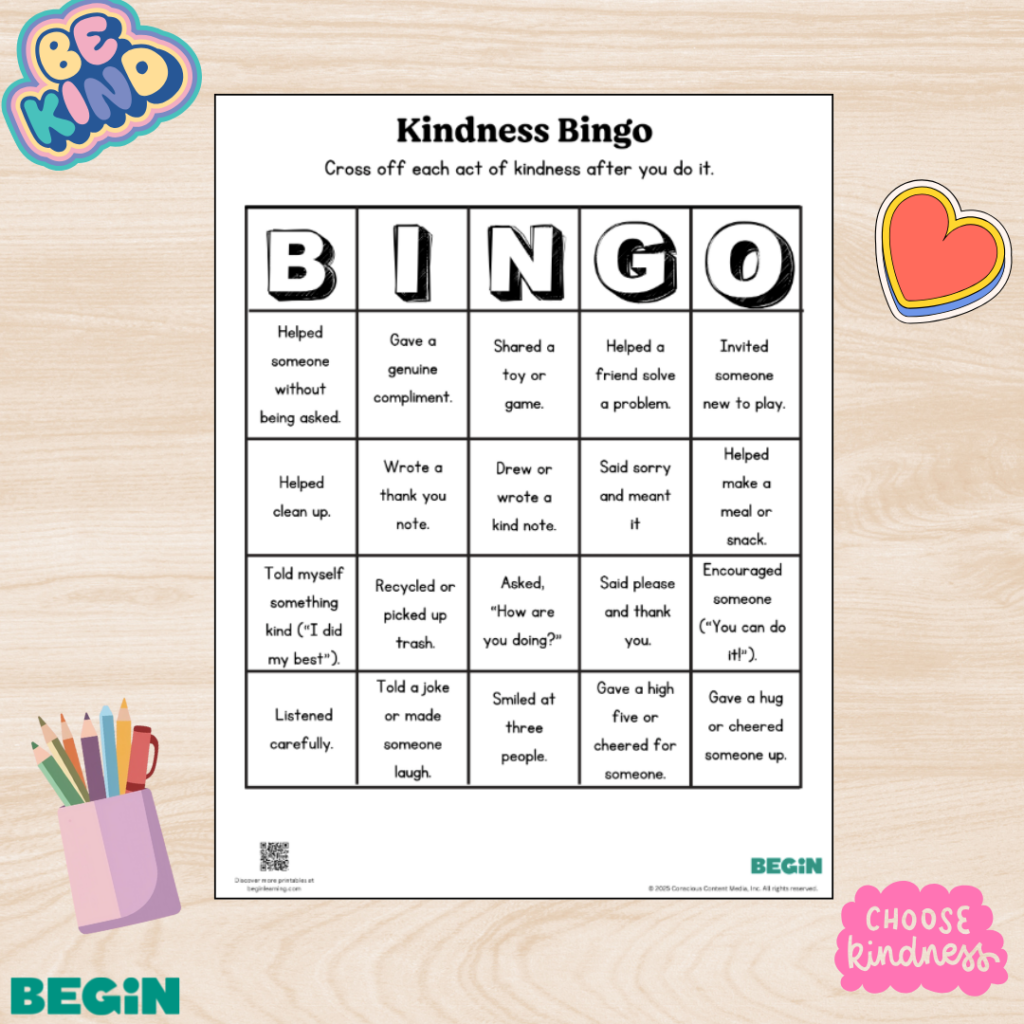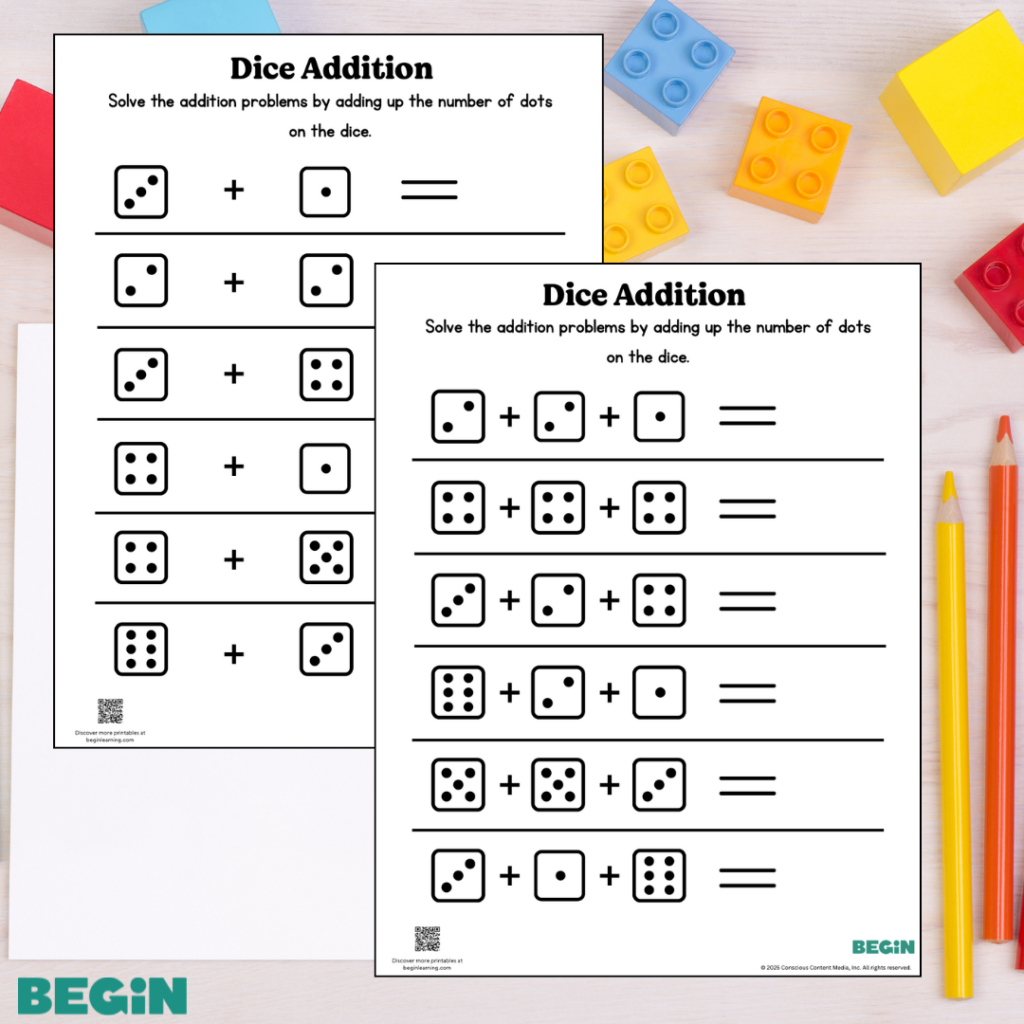Many parents intuitively want their children to be confident. Confident kids can be themselves in public, feel comfortable advocating for themselves, and are willing to take creative risks they might otherwise avoid.
For some children, confidence comes naturally, but for many, it’s a challenge. But don’t worry — shyness is normal, and we’re here to help!
The Short Cut
- Confidence is a key area of developing Character, one of the 6 C’s at the heart of the Begin Approach to thriving in school and life
- Being shy is very common, especially in younger children
- Shyness usually stems from worry or fear of being judged by others
- Parents can support shy kids by speaking positively about them in public, preparing them for new social situations, and helping them learn about feelings
How to Support Your Shy Kid
Shyness is often misunderstood. Many people think that shy children are introverted or dislike people. But neither of those is true. Shyness, at its core, is often the result of a fear of social judgment.
Shy kids worry about what others will think of them. Because of this fear, they prefer to avoid social situations. If they don’t talk to people, they believe they won’t get criticized or feel embarrassed. Staying away from people reduces the chances of them getting hurt.
Shyness is very common! Lots of children feel shy in new situations or around new people. And the younger your child is, the more likely they are to exhibit shy behavior because they haven’t had as much life experience.
Since shyness is on a spectrum, it doesn’t always look the same. You might have a child who is shy in certain situations — such as at the grocery store — but isn’t shy at school.
The way kids show their shyness also differs, Some shy kids might hide behind you or objects around them. Others might be very quiet and just not say much.
No matter how your child expresses shyness, the strategies below can help them feel more comfortable in social situations.
1. Reassure Your Child of Your Love

Your shy child isn’t going to grow in confidence overnight. It takes time and practice for them to learn new social skills and feel comfortable. While you’re working on each of the following strategies, continue to let your child know that you love them just the way they are.
Teach your child that personality differences are normal. Remind them that they aren’t the only one who feels timid. And if you were shy as a child, take time to share your own experiences with them as well.
In addition, to help your child feel more confident, avoid labeling them as “shy.” For example, when you introduce your child to someone, don’t immediately state that they’re shy. Instead, let the other person get to know your child for themselves.
Lastly, if you automatically answer for your child or offer them a toy as an excuse to avoid engaging with others, they may internalize this habit. Then, rather than naturally overcoming their shyness, they are more likely to be dependent on you when they’re around new people.
2. Speak Positively about Your Child
As their parent, you have the power to build your child up with your words or knock them down. When you talk about your child in a positive light, it boosts their confidence.
When you describe your child to someone else, focus on their good qualities. For example, you might say, “My daughter is kind, and she always helps others,” or “My son is a great listener, and he’s always willing to help out.”
Avoid saying things like, “My son doesn’t like people,” or “I’m sorry she won’t say hello; she’s shy.” These words sound negative, and your child might think you’re complaining about their personality.
Remember that your children hear the things you say in front of them. By focusing on the positive things, you can help them learn to love themselves, even if they’re shy.
3. Take It Slow

When your shy child is in a new social situation, it’s important to take things slow. Don’t expect them to instantly join in on the action.
Instead, spend a few minutes preparing them before the event. Talk to them about who is going to be there and what might happen. This can help them start to become more comfortable with the situation.
Try to arrive early. This way, your child can adjust a bit before the crowd arrives. Then, introduce them to only one or two people at a time, giving them a chance to process the new names and faces.
Also, allow your child to spend time observing what’s going on. Let them watch how others are interacting. And stay with them, if possible, so they know you’re there for them.
Simply put, let your child lead. If they seem interested in joining in, encourage them to try. Just keep an eye on them and step in if they need you. If they’re not interested in participating, that’s OK, too! Kids need to know that they have the right to opt out sometimes.
4. Role-Play Social Experiences
Role-playing is a great way to help your shy kid prepare for a new social situation. Before you start playing, talk about some different experiences where your child has to interact with others.
Brainstorm as many scenarios as possible. For example, your list could include ordering food at a restaurant, going to a friend’s birthday party, or introducing themselves to a new child at school.
Once you have several ideas, encourage your child to pick one scenario to start with. Then, help them role-play the situation. Pretend to be the person they’re interacting with, and have your child respond as they would in real life.
This will help them practice how to act and react in different social situations and use those important social skills.
If your child is struggling, switch roles. Let them be the other person, and you pretend to be them. Then, switch again and see how your child responds.
When you’re done role-playing, talk about the experience. Discuss how your child felt in each situation. Find out if anything made them feel scared or worried. No matter what feelings they express, let them know that they’re normal.
If your child has trouble putting their feelings into words, apps that focus on social-emotional learning, such as our HOMER app and Learn with Sesame Street app.
5. Read Books about Shy Kids

Your child needs to know they aren’t alone. To help them understand that shyness is normal, pick some books with shy characters to read together.
Here are a few of our favorites:
- The Invisible Boy by Trudy Ludwig
- Too Shy to Say Hi by Shannon Anderson
- Crunch the Shy Dinosaur by Cirocco Dunlap
- Willow’s Whispers by Lana Button
- Blossom Plays Possum: (Because She’s Shy) by Lyndsay Nicole Milliken
After reading each book, do some simple extension activities to help your child get more out of the story. For example, ask them to draw a picture of their favorite character, act out a part of the story, or write a couple of sentences about how the book made them feel.
6. Talk about Feelings
Talking with your child about their feelings is very important.
Ask your child how their shyness makes them feel. Do they feel scared about meeting new people? Or do they feel embarrassed that they can’t think of anything to say?
Talk about the different emotions your child experiences when they’re exhibiting shyness. And help them understand that their feelings are normal. This will help your child feel more comfortable processing their own shyness.
Remember that these big feelings can be hard for shy kids to express. Your child might need your guidance as they learn to talk about how they feel inside.
Once your child feels more comfortable sharing their emotions, take time to regularly check in with them. Before you head into a new situation, ask how they’re feeling and listen to their response.
7. Avoid Over-Scheduling
Too much stimulation can be overwhelming for shy children. If you have them going from one activity to the next, it can make them feel even more anxious.
Instead, make sure your child has plenty of downtime throughout the day. They can use this time to meditate and relax.
Also, allow them to pick and choose which activities to participate in. Giving them some ownership over their schedule can help them feel more confident.
If you have a hectic week coming up, warn your child. Talk to them about what’s going on and who they’ll be seeing. This way, your child can mentally prepare.
8. Talk to Your Child’s Doctor If You’re Concerned

Many kids outgrow their shyness over time, but some shy kids are prone to develop social anxiety later in life. If your child’s shyness is negatively impacting their life, speak to their doctor about your concerns. They might recommend counseling or letting your child pick an activity of interest to join.
Supporting Your Shy Kid with Begin

If you’re a parent of a shy kid, you want to love and support your child through this phase. The activities above can help your child learn to be more confident in themselves and the feelings they’re experiencing.
Begin can help too.
One of our learning programs, created with the experts at Sesame Workshop, helps kids develop social-emotional skills that foster confidence and self-awareness. Alongside favorite Sesame Street friends, they learn how to express their emotions, empathize with others, and create healthy relationships.














